- Philip Norman’s “letter” to Paul - May 2, 2016
- The Jets and The Beatles - April 25, 2016
- Lennon and McCartney On The Tonight Show, 1968 - April 20, 2016
By Gibson DelGiudice, guest Dullblogger
As a 21st century Beatles fan (born in 1990, and so coming of age during the new millennium), it seems only natural that I probably have a different perspective than most Beatles fans on the literature that documents the group’s rise to fame and the careers of its members. I’d like to share a Tumblr-influenced way of looking at Beatles books and sorting them into categories, based on the attitudes they express.
Like many young people today, I’m a consummate Tumblr user. At the time of posting, over 277.2 million blogs make up the Tumblr network , so it should come as no surprise that many fandoms are well-represented on it, and that the Beatles are no exception. Fandom discourse is rampant on Tumblr, and often takes on predictable forms. User watertightvines has divided posts by fans (or critics) into one of five categories, based on the attitude expressed toward the subject under consideration: “Tagging Ur Hate,” “Callout Post,” “Look At My Garbage Child,” “MY CHILD WOULD NEVER,” and “FLAWLESS!!” (See descriptions of these categories at the end of the post.)
In the post naming the categories, watertightvines noted that biographies tend to follow the same patterns as fandom discourse, so that someone used to reading posts by fans or critics can recognize the same tendencies in these long-form works. Reading the post, I realized that one could sort Beatles biographies into the same categories. Some books may even fit more than one category.
As an avid reader of Hey Dullblog, I’ve come to admire both the blog’s authors and the prolific and intelligent commentators who appear on it regularly. I rank them with the posters at Tough Pigs (which aptly describes itself as a site for “Muppet fans who grew up”) as being a cut above the average fan in terms of intelligent discussion that might not be brought up at other sites dealing with these topics. I like to think you’re all hip, with it, and capable of embracing new ideas. So I thought I’d lay these descriptions out for you, and we can discuss which biographies fit each description, and which might fit more than one.
Let the categorizing commence!
Tagging Ur Hate: In a bio like this, you’re not quite sure why the author chose to write about this person, as they don’t appear to have any fondness for them. Like, at all. Ranging from dismissive to outright hostile, this type of bio goes beyond criticism and spends most of its length denigrating its subject on a personal level. And any speculations sound like entries in Regina George’s Burn Book, likely with gross –isms.
Callout Post: Much like “Tagging Ur Hate,” the author of this type of bio thinks the subject is an asshole or worse. Unlike “Tagging Ur Hate,” they won’t go for the direct attack, instead choosing to take the high(er) road of criticism instead. This bio provides sources for their subject’s horrible choices, and in the absence of evidence focuses more on the public than the personal. Speculations are not unilaterally negative, but they cut the subject very little slack.
Look at My Garbage Child: Again, this type of bio is upfront about a subject’s flaws, but unlike the above two classifications, the author has a soft spot for their subject, albeit one which they express through snarky language. They’re as likely to defend their subject as they are to call them on their behavior. The general vibe of works like this is “Oh, you!” followed by an affectionate rolling of the eyes. The speculations of the author of this type of bio are often accompanied by a reminder that we cannot know for sure, and their level of sympathy varies depending on the situation.
MY CHILD WOULD NEVER: At this point, let’s just start with a baseline assumption that the author knows their subject has problematic moments, yes? And let’s also assume that they are perfectly willing to criticize them. In the case of “MY CHILD WOULD NEVER,” however, they also have a lot of… feelings. Like “Tagging Ur Hate,” they will focus on the personal; however, they will do so with sympathetic leanings. They may go to great lengths to contextualize the subject’s bad choices, with the disclaimer that “explaining” and “excusing” are not the same. Their speculation is often the kind that you would expect the stereotypical teenage fanatic to preface with “okay but” and end with “I JUST…”
FLAWLESS!!: The equally toxic counterpart of “Tagging Ur Hate.” Some of the authors on Dullblog might already know this as a “puff piece.” This is the type of bio where the author genuinely believes that their subject is a fantastic human being beyond reproach or (for the more cynical of us) is firmly dedicated to pushing that particular line of reason. Their opponents are vilified (often with the same gross –isms – sound familiar?), and the subject’s problematic actions are either excused or outright ignored. As for speculations, they’re usually unilaterally positive, often in the sort of way that would show up in a political candidate’s campaign ad.
So, I now leave it up to all of you:
Which biographies of the Fabs would you class as which category, and why? For that matter, are there any that fit more than one category?
Gibson DelGiudice is Co Producer, The Two Per Cent Solution Production & Development Company Inc.
Vice President (Project Development, Management and Production), East West Image Media International

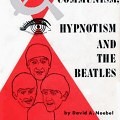
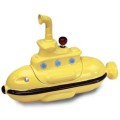

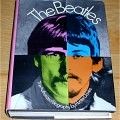
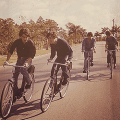
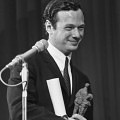
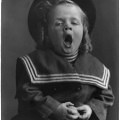
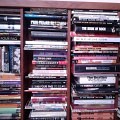
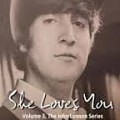

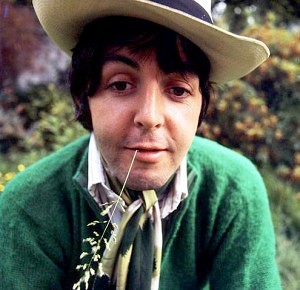
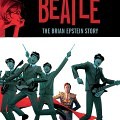
I’m also a more 21st century Beatle fan (although I’ve got 8 years on you, whippersnapper) and I think its fascinating to watch how people our generation are looking at the Beatles. Personally, I like tumblr; professionally, it drives me into fits; with all these unsourced, uncontexted quotes floating around.
Love the idea of categorizing the Beatles bios via Tumblr’s classification system, so I’ll take a shot:
Tagging Ur Hate: There was a mid-80’s bio of Paul that qualifies as this: unfortunately, I am away from home, don’t have my notes, and I can’t remember the author’s name (just that he had worked for Rolling Stone and contributed to their hagiographic “The Ballad of John an Yoko” booklet.) It’s based on supposed authorial discussions with post-breakup John, which are undocumented, and lots of the text is lifted, uncredited, from other people’s work. Francie Shwartz is lionized as some keen expert on Paul. The whole bio is really a way to argue how much more superior John was than Paul: the author even begins the intro by implying that a bio of Paul is less important than a bio of John. And, of course, Goldman’s John bio also qualifies, but that’s far more well-known.
Callout Post: I’d actually classify large chunks of Spitz’s “The Beatles” as this, though others may certainly disagree.
Look at My Garbage Child: Carlin’s Paul bio.
MY CHILD WOULD NEVER: Hertsgaard’s group biography (which I highly recommend) and Norman’s bio of John.
FLAWLESS!!: Ray Coleman’s 1985 edition of his John bio. He tones it down ever so slightly in later editions, but yeesh; that first one is straight up hagiography. He even excuses John’s acts of physical violence by arguing that, hey, the people John attacked became famous, so ultimately they benefited, right? And yeah; John treated Cynthia and Julian like something nasty on the bottom of his shoe that needed to be scraped off, but Cynthia understood and forgave John, so that’s all good. Not to mention every utterance by breakup-era John and all-eras Yoko is regarded as infallible gospel.
Tagging Ur Hate: There was a mid-80’s bio of Paul that qualifies as this: unfortunately, I am away from home, don’t have my notes, and I can’t remember the author’s name
Yesterday by Chet Flippo. Awful, awful book. It’s everything you say it is and more. I really wonder what could posses people to write stuff like that and not be embarrassed. I was embarrassed for him, for his blatant John fawning and for the unsourced, biased, juvenile mess he tried to pass off as an actual biography. Goldman’s book annoyed me because he seemed to bypass facts in favor of opinion. He “diagnosed” John with so many afflictions it’s a wonder the Beatles ever existed. He started the dyslexia rumor that still persists to this day. Then he proceeded to diagnose him with schizophrenia for God’s sake, and a small motor impairment that according to Goldman, kept him from ever learning how to play the guitar. He said that John’s guitar was always, “buried in the mix” ( it wasn’t) to hide this small motor impairment of his. Where on earth he found this “information” and all of these woeful diagnoses of John’s is beyond me. Plus he knew nothing about the Beatles’ music, musicianship, or the Lennon/McCartney partnership. Absolutely appalling. So yes I agree these two fall under Tagging Ur Hate, also there should be a sub category called, Just Plain Dumb.
I agree with your Spitz assessment ( I’m not crazy about the Spitz book) and yes definitely Carlin’s book falls under Look at My Garbage Child.
MY CHILD WOULD NEVER: Hertsgaard’s group biography (which I highly recommend) and Norman’s bio of John.
Yes definitely. Once again I agree. I would also add Salewicz’ 1988 biography of Paul to the My Child Would Never category.
Yes Ray Coleman’s nauseating hagiography definitely falls under Flawless, but also the Larry Kane book on John with it’s, ‘John Lennon and the Beatles’ , Paul Who? revisionism.
What category would we put Shout? It seems to belong in two categories. For John it belongs in My Child Would Never, and for Paul, George and Ringo it would be Tag Ur Hate I guess?
“Yesterday by Chet Flippo.”
THANK YOU! it was driving me crazy, being unable to remember it; although perhaps I deliberately wiped it from my memory. It was that reprehensible.
(I have to grade midterms now, so I’ll have to wait to talk about where to put Shout! I deliberately avoided categorizing that one in my initial post because, well, I might have dropped a subtle hint or two here before that I don’t particularly care for that book.)
“Yes Ray Coleman’s nauseating hagiography definitely falls under Flawless, but also the Larry Kane book on John with it’s, ‘John Lennon and the Beatles’ , Paul Who? revisionism.”
I have not read much Kane. What I have read is less than impressive, although I did enjoy most of “Ticket to Ride.” (Although not the part where he implies that Paul may have been somewhat of a closet racist because he used the phrase “some of my best friends are black” in an interview with Kane in the mid-60’s).
I skimmed through his most recent book, “When They were Boys,” in the bookstore, and lost interest when Kane attached actual significance to Yoko’s story that Mimi had told her, Yoko, that she, Mimi, was always suspicious of Paul, from the beginning of his friendship with John, because when Paul would come over to practice, John would sit on the floor, whereas Paul would sit on a stool, above John. Kane uses this anecdote to imply that Paul was clearly a Machiavellian power-grubber from the very beginning. Plus, in an interview which was published around the time of the 50th anniversary of the Beatles appearance on the Ed Sullivan show, some magazine tribute did an interview with Lewisohn, and another with Kane. (I didn’t buy it, but I skimmed it). According to the interview with Kane, “John and Paul never really loved each other.” What an arrogant declaration for a reporter who tagged along on a tour and interviewed them a few times to make, and one that is contradicted by countless direct quotes from both sources.
I’d classify Shout! as more of “Flawless!” John, at least the first editions. It’s not that Norman excuses John’s bad behavior; it’s that he doesn’t even acknowledge it AT ALL. John’s beating of Bob Wooler at Paul’s 21st birthday party is so vaguely referenced Norman doesn’t even use Wooler’s name; John’s abysmal divorce era treatment of Cynthia and his abandonment of Julian are ignored. Ringo doesn’t even register enough in Shout! to qualify for any character; he barely exists in the book as it is. George and Paul would both definitely qualify for “Tagging UR hate.”
he mples that Paul may have been somewhat of a closet racst because he used the phrase “some of my best frends are black” n an ntervew wth Kane n the md-60’s).
Oh that was classic! Like, “I don’t know what to do to make someone look bad compared to my man crush, John Lennon, so I’ll just call him a racist. I heard the audio of the interview with Paul and he actually says after talking about how shocked he was that blacks were not allowed to sit next to whites in the south, and I paraphrase, ‘This would never happen in England. If a colored person sat down next to me, I’d think, ‘Hey great! Ya know’? What Paul sounded like was an inarticulate kid. Calling him racist is really grasping. I also didn’t think it was necessary for Kane to report that Brian made a pass at him. Maybe I wouldn’t mind so much if I believed him, but I don’t. I think the idea of the Beatles’ manager making sexual advances toward an obviously straight reporter on tour with them is kind of farfetched. Not to mention, Kane is not even Brian’s type. Kane really has no credibility with me.
Kane uses ths anecdote to mply that Paul was clearly a Machavellan power-grubber from the very begnnng.
Oh c’mon he’s got to be kidding! Paul sat on a stool and John sat on the floor? Where did they find a stool?? What..a bar stool? And did he force John to sit on the floor?? That is such a silly little story and it makes no sense. First of all I don’t think Mimi even said it. I think someone is confusing Paul’s dreadful stool sitting with George Martin’s habit of sitting on a stool while the Beatles played new songs to him. Geoff Emerick mentioned that it was part of Martin’s so called arrogance, that he needed to sit higher up than the four boys. Hmm don’t the two stories sound strangely similar? I have to say, people who knew the Beatles and write books, seem to have a real bee in their bonnets about people who grab a stool to sit on instead of a chair. Apparently it’s very symbolic. 😉
Accordng to the ntervew wth Kane, “John and Paul never really loved each other.”
Is it possible these people are getting information like this from Yoko? Because I cannot figure out why it’s so important to so many authors and journalists to push this agenda of Paul as nothing to John…He didn’t love him, he was more talented, Paul was Machiavellian, Paul sat on a stool…Why is it so important? Why is the truth so much less attractive?
It’s not that Norman excuses John’s bad behavor; t’s that he doesn’t even acknowledge t AT ALL.
But WHY? Do people like Kane and Norman have an adolescent crush on John, causing them to be jealous of Paul? Is Yoko paying them?
I thought the “racist” implication was simply egregious: Taking a phrase that is loaded for Americans, but not Englishman, and using it to imply that Paul — always the most outspoken against discrimination and African-American segregation — was secretly slightly racist is contorting yourself into ridiculous positions. I’ve never heard another Beatles authority agree with Kane; they describe Paul’s views on the issue of segregation anywhere from passionate to good intentioned to naïve, but no one else has ever implied that Paul was secretly racist.
Philip Norman also mentions the “stool incident” in his John bio, but remarkably doesn’t attach the same epic Machiavellian significance to it that Kane does. Norman simply states that, according to Mimi, she found Paul’s sitting on the stool to be a little demonstration of his ego/confidence. (Which, according to other sources, Mimi genuinely liked Paul; she just thought he needed to be taken down a peg). So yes, where people sit during different parts of Beatles history and in Beatles historiography is of massive significance: it should be our new thread!
I confess that I find Emerick’s criticisms of Martin fascinating. Martin’s depiction in so many works — even ones that blatantly ignore his testimony, like Shout or Ray Coleman’s work — is so complimentary that it was interesting to view Martin through Emerick’s eyes. Having said that, Emerick issued a statement yesterday, talking about how much he learned from/admired Martin and also (like Paul) saw him as a sort of second father. Martin, to his credit, acknowledges his intense sense of competition, particularly with another producer at EMI whose name I can’t recall. Martin really, really wanted to beat him.
I could write a book on why I think writers like Kane and Norman have already and continue to push their own versions of Beatles history, which are blatantly pro-John and anti-Paul, and avowedly dismissive of the Lennon/McCartney partnership and relationship, (I think the re-interpretation of the breakup is playing a big role in it) but I think the simplest explanation is access. Virtually every Beatles author I have read grants more complimentary accounts of the Beatles figures who granted them interviews than the ones who didn’t. Yoko granted Kane access; Paul didn’t. Norman, Coleman, Wenner,Goldman, Goodman, Kane: all of these authors of blatantly biased and methodologically flawed works are paying back the favors to the people who allowed interviews, and, because of those interviews, have an abundance of information supporting side ‘A’ and a lack of information supporting side ‘B.’ It’s just another demonstration of how the picture of Paul the P.R. guy is incomplete and, in parts, incorrect.
Norman simply states that, according to Mimi, she found Paul’s sitting on the stool to be a little demonstration of his ego/confidence.
Or maybe he was more comfortable sitting on this ‘stool’ while he played his guitar, while John was more comfortable on the floor. I’m so tired of reading over and over about his supposedly, massive ego, with silly, meaningless “examples” to support it. They look for meaning in everything he did to support this massive ego theory. It’s like the p.r. man theory. He smiled, he stood on a step above the others, he wore green while the others wore grey, he was eating an apple but the others weren’t, the sun was out, it was raining…anything and everything no matter how meaningless or ridiculous is used as an “example” of how simply awful this guy was…how egotistical, how shallow, how talentless, how maneuvering, such a womanizer, such a p.r. man, so chauvinistic wanting his girlfriend to be around once in a while because everyone else’s wives and girlfriends were. My problem is not that I refuse to believe that McCartney was any of these things. I do believe he has a massive ego, even at 15. But so did the others. Yet whenever they exhibit this behavior it’s called something else. It’s described as an example of leadership, or passion, or youthful exuberance and confidence etc. Likewise of course McCartney was a womanizer but so were the others even after they were married for the second time. And they were all chauvinistic because they were inadvertently raised that way as a product of their time in history. And they were all p.r.men . They all knew exactly what to say or not say, and when to go forward or pull back, depending on the mood of others in the group. In other words, the Beatles were a very well oiled p.r. machine, all of their parts working in unison. When I read a biography I want to read about who these people were…all of the facets of their various, complicated personalities and how those personalities meshed. Authors like Kane or Norman or Coleman etc don’t want to make the effort to do that so they rely on meaningless observations that tell me nothing. They are caricatures, like something you would find in a bad novel, or the lazy examples that a fifth grader would put into an essay. Like the fifth grader who doesn’t care about the content of his essay as long as he turns in the assignment and gets a passing grade, Norman, Coleman, and Kane don’t really “give a shit about the Beatles”, so they don’t give a shit about historical fact either. So John was wearing a turtleneck while Paul wore a suit? Is that supposed to illustrate to me how rebellious and with it John was compared to Paul’s …what? Conventional manner of dress? Or was it more likely that John hadn’t had time to change into his suit before they had to jump into a limousine and be whisked away. What about the posed photos of Paul wearing a jacket and tie with a pair of jeans as early as 1963, while John wears a conventional suit? Also we’re always hearing about John throwing up before a performance, but no one noticed how nervous Paul always looked on American television…the profuse sweating, and his voice sounding choked back in his throat. And perhaps Mimi was appalled at Paul’s choice of a stool instead of a floor cushion, or ottoman to sit on, but was she there the night his supposedly massive ego failed him and he flubbed his guitar solo, causing him to abandon the lead guitarist role forever, until he was more comfortable with it within the confines of a recording studio? So it seems that in spite of his egotism, (or was it just “passion” ” youthful exuberance” and “confidence”?) It seems Paul also had a massive dose of stage fright. From what I’ve observed and read, it has become apparent to me that Lennon and McCartney were as alike as they were different. Their differences may have complimented each other but their similarities are probably what attracted them to each other in the first place.
I agree that because Yoko has made herself so available to authors and journalists over the years and Paul hasn’t this has attributed to writing that supports Yoko’s twisted, defensive views. Indeed, if Paul is such a p.r. man, why isn’t the situation reversed?
Confirmation bias is difficult to overcome, particularly if you have an emotional/personal investment in reading/interpreting evidence (or third-hand stories about stools and seating arrangements) a certain way. Or, as Gaddis, an author on historical methods puts it, “It’s all too easy to find what you are looking for when you have already decided ahead of time what it is.”
The official version of Beatles history categorized John as the “smart” one and Paul as the “cute” one, this (along with a jillion other stereotypes attributed to each man) snowballed with “Lennon Remembers” and the breakup and became concretized with Shout! and Coleman. Admitting that their interpretation of Paul was wrong is anathema, because that means that not only was John not telling the truth in the breakup era, it also means that all those authors who blindly reiterated John’s breakup era statements DIDN’T DO THEIR ******** JOBS. They have to admit they were wrong about John the oracle of truth, which seems to be almost impossible for them to acknowledge, and they have to admit that they, the authors, were wrong in their interpretations.
I agree; at some point you have to apply Occam’s razor and simply conclude that Paul sat on a stool at Mimi’s when practicing with John because that’s where he wanted to sit, not because he was a Machiavellian mastermind at the ripe old age of fifteen, plotting to usurp John’s place as the leader of a band that didn’t EVEN EXIST YET.
The only other slightly negative thing I’ve read about Martin is Ken Scott’s account that Martin once grumbled, upon seeing Brian swamped by a horde of ecstatic Beatles fans, “That should be me.”
@Ruth and @Linda A., I just want to chime in here with an unpopular — but, I feel, necessary — opinion.
It is all well and good to expect biographers to tell the truth. But a biographer or journalist is not an historian. To hold both to the same standard does not acknowledge the very different jobs they have. Journalists, and biographers, are often working under time-pressure, very close to the subject in time and space; the benefit of a wider range of sources, and perhaps many conclusions based on data that is present but doesn’t come up to an historian’s standard of proof, is counterbalanced by the siren-like power of prevailing opinion. They are, to quote the hoary chestnut, writing the rough draft of history. This is the best-case scenario. The reality is often much less useful…but it can still be entertaining. The kind of characterizations you’re talking about — Mimi’s opinion that Paul was putting himself above John by sitting on a stool; John’s throwing up before performances — this type of information is the very marrow of biography. Biographers are telling a story, and a story needs characters, conflict, etc. It’s not better biography to say, “John frequently threw up before performances out of stage-fright. But of course Paul might have been nervous too; he often sweated quite a lot.” Do you see what I’m getting at? A biographer has to differentiate between the main characters in this story; we must feel we know each one, and feel their uniqueness, and that characterization must come at the expense of even-handedness.
Then, after the biographers tell their stories, you guys come behind and debunk. Having the benefit of much more hindsight, a cooling of the passions, and maybe more information, historians write the definitive work. But the ironic thing is that it’s often those misleading biographies, with their simplified narratives and blatant PR, that spur the deeper study of a subsequent generation. That is exactly what has happened with Norman and Lewisohn; without Norman, Lewisohn’s life might have taken a much different course.
I can’t help but underline a persistent note of outrage towards books like Coleman and Norman which strikes me as, well, we’ll call it unhelpful. If Paul was manipulative, image-obsessed, or scheming — if he was every little thing John Lennon accused him of being — it doesn’t change one single accomplishment. We don’t need to believe either man’s myth. Paul doesn’t need our protection. He’s one of the best-known, most-covered people on the planet, and anyone who cares to develop an opinion about him has plenty of stuff straight from Paul’s mouth with which to hang him or lionize him.
Paul McCartney was what he was, and is what he is, and nothing Ray Coleman (writing a biography of John Lennon in the wake of his incredibly shocking and tragic murder) or Philip Norman (writing the first comprehensive story of The Beatles since the breakup) changes that one whit. Just as John came in for kid-glove treatment from people like Wenner, Paul George and Ringo have all had their partisans; and if they weren’t publishers of Rolling Stone, that doesn’t invalidate the point: unless you know the guy, this is all guesswork. We each of us see these people through a glass darkly, and rather than endlessly excoriating Wenner/Coleman/Norman for not being Lewisohn (and I’d argue they could not have been Lewisohn), it’s better by far to use them as a learning experience: don’t be too quick to believe. We shouldn’t believe Paul’s public image any more than we should believe John’s caricature of him; or if we choose to believe such a narrative, acknowledge that whatever we’re swallowing, for our own reasons, is unlikely to be the truth.
So Jon Landau didn’t get RAM — this matters less than nothing today. So there was, and to some degree remains, a sense of John Lennon as a genius and Paul as something notable but lesser — that opinion, no matter how common, doesn’t change the fact that Paul McCartney is probably the greatest songwriter of the 20th Century, as SPIN called him in their obituary for George Martin. Paul is not unappreciated. And to wish for some kind of cultural parity is a waste of time, especially since one of them died at 40 under the most tragic circumstances. The moment he died, John Lennon became primarily a symbol — a job he’d been campaigning for since at least 1968 — and no person, no matter how brilliant, can compete against that. That’s probably why John wanted it so badly.
Yet the symbol of John Lennon is an historical fact worth noting; as is his peculiar hold on journalists and reviewers. Will Paul exert a similar hold on historians? Or will historians reject the John versus Paul meme entirely? Only time will tell.
Journalists and biographers are writers paid to provide stories that sell — because they are paid by for-profit companies whose existence is determined by sales. Historians are paid to provide stories that hew to standard historiographical methodology, which often does not produce very entertaining narratives — which is why they are paid by not-for-profit institutions. Stars are paid to create and maintain images, not tell truths about themselves or their lives. Readers should keep these things in mind, and filter accordingly.
Journalists and biographers are writers paid to provide stories that sell — because they are paid by for-profit companies whose existence is determined by sales. Historians are paid to provide stories that hew to standard historiographical methodology, which often does not produce very entertaining narratives — which is why they are paid by not-for-profit institutions.
So where does journalistic integrity fit into this, MG? Your statement puts every journalist and biographer in the same category as the National Inquirer. Journalists and biographers may have to entertain us, but they don’t have to lie, exaggerate, and contort the facts to do so. If the average Beatle fan, like us for example, can separate the wheat from the chafe, then so can they. There is simply no excuse for the shoddy research and thinly veiled bias that passes as biography.
“But a biographer or journalist is not an historian.”
Which is a very valid point, Michael, but it overlooks two key issues: First, many of the works we were discussing have been packaged and sold and described as history. Wenner described “Lennon Remembers” as “history as well as revelation.” Norman repeatedly references TNYT evaluation of “Shout!” as “The definitive biography of the band,” and its subtitle was “The True Story of the Beatles.” When your work is marketed as the truth and history, than I believe its valid to judge journalists and the biographies they produce by historical standards. I’m not familiar with journalists standards; if you could describe them so we could compare and contrast the two, I think that could be very revealing.
Second, while you have this insider knowledge on journalists and biographies and how they are written, its safe to assume that the average fan does not. They buy a biography which has been critically acclaimed (which both Shout! and Coleman’s work were, at the time) and they read it and accept it and believe it to be accurate. They don’t realize, as you said, that in a biography “that characterization must come at the expense of even-handedness.”
I have to disagree that the continued identification of the flaws in Norman, Coleman’s, Wenner’s works, etc. is “unhelpful.” on the contrary, I consider it essential. (Admittedly, the topic can get somewhat old, which is why I refrained from referencing Shout! in my initial post because, as I stated, I believe I’ve made my feelings clear on that work). Part of this on my part may simply be professional interest; as I commented in one of my first posts, as a historian, I tend to see everything through the lens of historiography, and I don’t anticipate that stopping any time soon.
Correct me if I’m wrong, but much of the rest of your post seems to argue that whatever history says about John and Paul, or the Lennon/McCartney partnership, or the Beatles, doesn’t ultimately matter, because it was what it was, produced what it did, and the music is left to us.
If you believe that, why does this blog exist? Why do people (myself included) shell out over a hundred dollars for extended editions of “Tune In?” Why do people still passionately argue these issues? On another post (I can’t remember which one) I seem to recall a comment you made, because I agreed with it wholeheartedly; “If these guys are worth discussing, than they are worth getting right.” In my opinion, getting as accurate a version of history and the Beatles as we can is extremely important.
I can’t help but feel that parts of your post make assumptions
that aren’t there. I do not blame Norman for not being Lewisohn; I blame him for producing an admittedly biased work and then failing to revise it despite his admittance that it was flawed. If I gave the impression that we should accept Paul’s mythology, and those who promote it unquestioningly, while applying critical source analysis to everything John, Wenner, Coleman, Norman, etc. said, than I never intended to and publicly renounce the idea.
“So Jon Landau didn’t get RAM — this matters less than nothing today.”
Except it matters immensely in how the Beatles story has been told. (Personally, I don’t give a whit for what any music critic says; its all subjective twaddle to me.)
“Yet the symbol of John Lennon is an historical fact worth noting; as is his peculiar hold on journalists and reviewers.”
I would love to see someone who understands and comprehends this issue offer a post on it, because while I acknowledge its existence I personally don’t see it, and don’t understand it. Perhaps its a generational/gender issue; perhaps its retrospective vision; I personally just don’t understand it.
One of your overall points — that readers should not swallow everything they read — is one I wholeheartedly support.
Ruth, give me a second to create a new post for this topic. I think it’s a great discussion and needs it’s own venue to tease out all the issues further.
I have nothing to add, just wanted to say @Ruth, @Linda, @Michael: I’m enjoying this discussion very much and I appreciate all your opinions. Lots to think about in this thread; thank you for sharing!
It’s not better biography to say, “John frequently threw up before performances out of stage-fright. But of course Paul might have been nervous too; he often sweated quite a lot.”
But I think it is better biography. Of course it would have to be worded in a more entertaining way perhaps and maybe not necessarily in the same paragraph or page. But I think it’s exceedingly important that a biographer give a balanced account if he’s reporting on a group rather than one person. Noting what you have said about popular biography, I still have to say that so many biographies on the group are really just John Lennon hagiographies veiled as Beatles biography. Page after page is what John did, what John thought, what John wrote, where he sat, what he wore etc etc. Even the Spitz book while not a Lennon hagiography by any means, still seemed to have way more information on John, good and bad, some of it interesting, some not. Hunter Davies book was the first biography and I think it’s the only one that while it is flawed at least it is even handed.
I don’t think the kind of balance you’re talking about is possible, @linda a. Not as long as biographies are written by human beings.
Case in point: I am by no means a Lennon fanboy, but Spitz’s book didn’t strike me at the time I read it as tilted towards John. Maybe it was, but if that’s what Spitz was going for, He didn’t succeed with me.
Lennon’s life was very dramatic, with a ton of Big Moments, action and conflict, and he compulsively talked about himself in public. Paul’s life, in addition to being ongoing (which gives statements and conclusions about him a legal dimension that ones about Lennon do not have), has been a fundamentally more private, less garish one. Paul has reaped tremendous personal benefits from this, with the one disadvantage of being a less compelling biographical subject than his ex-bandmate. This may explain why books like Spitz’s feel the way they do.
“Paul has reaped tremendous personal benefits from this, with the one disadvantage of being a less compelling biographical subject than his ex-bandmate.”
—
So Paul should settle for wildly inaccurate accounts of his motives, songwriting, and personal life because he’s made a lot of money and had a lot of people cheering for him? I can’t agree with that.
—
Paul is not a less compelling biographical subject. He’s just far more private than John. And I can’t see the point of defending laziness and inaccuracy and dubious fanboy motives of these third-rate “biographers.”
—
Peter Guralnick managed to write a deeply sympathetic yet hard-hitting account of Elvis’ life that was both ACCURATE and honest. Mark Lewisohn is attempting to do that with the Beatles. But Norman, Kane and some of these other obvious Lennon fanboys? Did more harm than good for the Beatles history.
@Drew, you should write the biography of Paul McCartney you want to read! If the state of affairs is as dire as you suggest — if he really has been so ill-treated, I am sure it would be very popular.
Paul is one of the most beloved, most celebrated, most respected artists of the 20th century. And h8ers gonna h8.
Yes, h8ers are indeed gonna h8. But that doesn’t mean we shouldn’t be talking about this!
In my blunt fucking opinion, Paul McCartney has long been threatening to the heteronormative male rock world, and they’ve given him a shit-ton of abuse for it. That’s INTERESTING. We’re not just complaining to complain, Michael, we’re trying to discuss it amongst ourselves. I mean, the Beatles broke up 45 years ago. What else is there to talk about? It’s 2016, so this is the most interesting topic to me at this point in time. Society and modern popular culture has evolved to a point where we can now re-evaluate and discuss Paul’s treatment through different lenses. I don’t think we’re doing it at John Lennon’s expense, so what is the problem?
@Chelsea,
I went to a talk this morning about the Buddhist concept of “right speech,” which the Buddha defined as:
I don’t think I can talk about this stuff any longer, and maintain right speech. All the goodwill in the world, and plenty of time I don’t have, has shifted this discussion not one iota. So I’m retiring from it, with a smile.
If you wanna know what I think and why, read my 375 posts on the site. This the first time I’ve had to do this in the eight-year history of the site, and that’s what’s bugging me.
I am by no means a Lennon fanboy, but Spitz’s book didn’t strike me at the time I read it as tilted towards John.
No and I probably didn’t make myself very clear. No I don’t think Spitz was aiming for a book that was tilted toward John. I was referring to the narrative throughout the book. If I remember correctly whenever Spitz would relate an incident he would very often tell us about Lennon’s reaction to the incident. It struck me because none of these reactions described by Spitz were sourced or attributed to anyone who might have observed the reaction. He didn’t write, “Tony Barrow was sitting across the isle from John on the plane going to New York and he saw John pick up the BeatlesMerchandise as if it were a sweaty, smelly, sock and throw it down in disgust.” No he simply writes that this is what John did as if he Spitz, was sitting there and observed John doing this. He would also describe John’s thoughts especially about Paul. It was as if he forgot he was writing a biography about real people and events, and thought he was writing a fictional novel. But it was always John who’s thoughts and actions were described as if he was the main character of this pseudo novel. I remember feeling bored with that and wondering if Paul, George, and Ringo ever had reactions about what was going on around them, or if they were incapable of human reaction and basic thought. Also Spitz spent pages and pages describing sing alongs John had with his friends in the park. I remember him going into minute detail about where they sat, what they sang, and who was involved. I remember wanting it to end. I also wondered why he didn’t go into long detail about Paul, George, and Ringo’s activities. Did they have activities? Paul and George used to sing together in George’s house and Paul would often stop singing if George’s father was home because he felt inhibited. But I don’t remember reading that in the Spitz book. Also the McCartney family always had singalongs, where Paul and Mike would sing a song from Lady and the Tramp called, We are Siamese if You Please. But I didn’t read that in the Spitz book either. I guess there was no room for those stories so they were edited out so more pages could be devoted to John? I don’t think Spitz is a John fanboy but I do feel that his book was uneven in its information about the group. Maybe this was the idea of the publishers? Kane also did this in his book, Ticket to Ride. And both of these authors often attributed the best, most controversial, and the funniest quotes to John regardless of which Beatle actually said them.
” I remember feeling bored with that and wondering if Paul, George, and Ringo ever had reactions about what was going on around them, or if they were incapable of human reaction and basic thought. ”
This! So much of Beatles fandom, in one concise sentence. 😉
I don’t know about you Chelsea but it was great to read Lewisohn’s even handed treatment of the group. Many people have mentioned that they didn’t think it was necessary for Lewisohn to write so extensively about Ringo but I was thrilled. I thought, finally a book that doesn’t devote thousands of pages to John, about 50 to Paul, about a half page to George and maybe a few sentences to Ringo. I thought, Lewisohn gets it. He gets the Beatles and who and what they actually were. But of course Lewisohn is an historian.
John frequently threw up before performances out of stage-fright. But of course Paul might have been nervous too; he often sweated quite a lot.”
@Michael Gerber please excuse me for answering this again but I replied to you on this before with a point in mind, but because I was in a rush I never even stated it. Basically what I have been griping about in this entire post is that I think most biographers miss a basic point that I think is the whole point about the Beatles. It’s something John Lennon knew from day one…that the Beatles were alike. Of course they were separate people with interesting differences that complimented each other. But the Beatles and especially Lennon and McCartney, were really more alike then they were different. They were a group..a whole unit..almost one person. And I think biographers like Norman, Kane, etc fail to capture that very basic definition of the Beatles. They try to reinvent them as something they never were. They were never Elvis and the interchangeable, invisible Jordonaires. They were not Buddy Holly and the Crickets. They were essentially one person, one entity. Hertsgaard captures this, as well as Womack, Gould, and even Davies to some extent. He’ll even Geoff Emerick does too. The Beatles were not John Lennon genius song writer, the witty Beatle, Paul McCartney charming diplomat, p.r.man, who wrote love songs about no one, or the quiet Beatle, or the “luckiest man in show business.” So at least for me, books by Norman. Kane etc ring false. There is something off about trying to write a biography about the Beatles and not acknowledging how alike they were, like a set of quadruplets.
Agree 100% with this, @linda a. Thanks for making the point.
There are several points that I’ve reiterated consistently throughout the history of this site. One is just what you say above– that the Beatles were more alike than different, and that the “Four-Headed Monster” reality of them has been largely forgotten in the wake of Lennon’s neurotic post 1968 mania to differentiate himself from Paul, his shocking and tragic murder, and the commercial opportunities inherent in conflict.
If I ever seem snippy on the site it’s probably this–that to me, whatever I’ve just said is in the context of everything I’ve said, over eight years; and so if I come out for the idea of Lennon as the leader of the Beatles for example, it’s with the basic similarity and essentiality of each member taken as read.
I am constantly trying to figure out how best to surface our hundreds of old posts and comment threads, but I haven’t figure out how just yet.
agree; at some point you have to apply Occam’s razor and simply conclude that Paul sat on a stool at Mimi’s when practicing with John because that’s where he wanted to sit, not because he was a Machiavellian mastermind
Problem is the average reader or a new fan who doesn’t know much, does not do that. That’s why authors have a responsibility to deliver an unbiased account. They are the ones who need to use the razor to shave away the information that doesn’t add up. I suppose that’s impossible though, when you decide to get Yoko Ono involved in your project.
I want to say for the sake of discussion that I no longer have a favorite Beatle. I don’t have an emotional investment in pushing a certain belief or agenda. I do however have a strong emotional investment in historical accuracy. It bothers me just as much as the Lennon Remembers version of Paul, that John has been labeled dyslexic, or that it was put out there that he was a lousy guitarist whose work was so embarrassing it was “buried in the mix”. It also bothers me that Ringo has been called by these same authors, a lousy drummer, not much better than Pete Best, and “the luckiest person in show business”. But there seems to be a lot more inaccuracies regarding Paul and they happen to be in books that are still widely read. The Goldman book is out of print, but Shout isn’t and neither are Larry Kane’s books.
The only other slightly negative thing I’ve read about Martin is Ken Scott’s account that Martin once grumbled, upon seeing Brian swamped by a horde of ecstatic Beatles fans, “That should be me.”
Very interesting @Ruth. Scott’s account rings true because it does fit with what others have observed about Martin and if I remember correctly, they fit with Martin’s own observations. But I can’t remember if there are any actual observations as obvious as this in regards to the Machiavellian theory of Paul. Are there any direct quotes like this one observed from Martin that can be attributed to Paul? Did anyone ever hear Paul say he wanted to upstage John or that he resented any attention that John got? Did anyone ever hear any direct quotes from Paul about resenting or upstaging anyone for that matter? Maybe Pete and Stu? He certainly resented them and he made it clear he didn’t think they were good enough for the Beatles but I think most people would agree that is hardly Machiavellian. Then there’s the quote about Paul asking Brian to manage him personally if the Beatles ever flopped. Not Machiavellian but merely ambitious. The only Machiavellian incident I can think of regarding Paul is the anecdote of Paul upstaging Mick Jagger at his own birthday party by walking into the Scotch and telling the dj to play Hey Jude immediately after the Stones’ Let it Bleed. It’s also interesting that the only problem John had with Paul’s behavior is that he chose his own, Hey Jude instead of John’s Revolution. Anyway this incident tells me more about Paul at that particular time in his life and career then his choice of seating arrangement in Mimi’s house, in 1957. It tells me that if Paul was in any way “Machiavellian” it was not on behalf of himself but of the entire group. Yes Hey Jude was of course, a Paul song, but it was also a Beatles song and at that time the entire group was going to bask in the glory of it, no matter who had written it or played on it. Which brings me to another point or question. Was it Machiavellian of Paul to have an increasing tendency to not want anyone else on his songs? Starting with Rubber Soul it seems Paul increasingly put out songs that were less a group effort than a Paul solo effort. Is that fact in itself more indicative of Machiavellian behavior than anything else? Even if it is, what annoys me so much about popular biographers is that they take a point like that and then try to make every event, every anecdote, every single thing Paul said or did, fit with their theory. No matter how awkward the fit they twist it and maneuver it to make some lazy, comic book point. That’s why the story about the stool irritated me because it is so insipid to me. I hate insipid.
I confess that I find Emerick’s criticisms of Martin fascinating.
@Ruth I do too. I think he’s reading too much into it and it is also a little snarky but it is interesting. I just found it strange that Emerick’s observation is so similar to Mimi’s observation about Paul. It’s as if the two stories were conflated or confused with each other.
” all of these authors of blatantly biased and methodologically flawed works are paying back the favors to the people who allowed interviews”
This is the most cynical interpretation of what’s going on here.
Here’s how it goes: you’re writing a book, on deadline, and you need to make all this stuff into a narrative that people will read and enjoy. For John, you have been given a lot of access — thus you have a lot of direct quotes and opinions and tasty anecdotes. All these things are new information — that is, the reason people will buy your book. For Paul, you don’t have access, so all you have to work with is material cribbed from other books. If Paul wants equal treatment, he should grant access, or encourage another book — something he seems to be doing more of (MYFN, Man on the Run).
Not only does a biographer not have time to check every fact presented by a source, if the source is sufficiently high up, there’s a disincentive to working too hard to disprove it. Disproving your source makes your source mad — which may get you less access next time — and makes your book less interesting and salable.
Sure, sometimes it’s paying back the favor of access. But just as often it’s the restrictions of time and commerce, which impact everything we do. And as Paul has granted more access, the coverage of him has become more balanced — which is predictable.
You’re right; my take was the most cynical one possible; and there’s certainly more room for nuance on the issue than I indicated in my initial post.
Having said that, Michael, as we’ve discussed before when we dealt with Shout! specifically, the contradictory evidence on Paul was already out there; it was simply ignored because it didn’t fit the author’s pre-determined thesis. In some cases it was hard to find; in others it was more readily available; but it was there.
The interviews, newspaper articles, and abundance of primary sources disproving or contradicting their stereotypes pre-existed their access to only one side. So even if they had an abundance of new information from John’s side, and only old information and sources on Paul’s side because of his refusal to be interviewed, there was evidence which contradicted Shout! and Coleman, and Wenner, and later Kane, and Goodman.
Immediacy might be playing a role in this discussion, Michael. I’m not sure when the last time was you read any of these works, but I’ve read all of them, in their various revised editions, within the last year and a half. And my reading is that their work was partisan, their biases deliberate, their theses predetermined, their acknowledgement of contradictory evidence minimal to non-existent, and their methodology insufficient to totally absent. And, yes, that many of them rewarded access with complimentary and sometime gushing portryals.
Am I judging them from a retrospective view, with knowledge that they did not have at the time? To a certain extent I’m sure I am, although I try not to.
“And as Paul has granted more access, the coverage of him has become more balanced — which is predictable.”
Absolutely. Paul’s failure to give access during the breakup period and in the early 80’s was a huge factor in the negative coverage of him. And his willingness to discuss the Beatles in-depth now and give interviews to du Noyer, Miles, etc. is one of the three key factors that has helped change coverage of him.
Paul has granted more access, the coverage of him has become more balanced — which is predictable.
I wanted to touch on this in my replies to Ruth but they were already too long. I don’t know how Paul thought that by closing ranks and not allowing anyone even the minimum of access he would nevertheless emerge victorious. It was naive of him to assume this, if he did. Also all of your comments regarding this topic are points well taken @Michael Gerber. What you said about biography vs historiography is worth noting and remembering. Because we here have so much invested in the band as historical figures, we notice when biographical details are blatantly wrong. I read a lot of biographies about many different historical figures and I often wonder if there are errors as glaring in those. Also I think that most of the time it’s obvious whether a work falls into the category of historical narrative, rather than popular biography.
@Linda a., it has been my experience (and probably yours too) that whenever I know a lot about a subject, then I read a biography–or even a history written by ah historian using pristine methods–that there are errors, statements of opinion presented as fact, and shading characterization. This is probably a side effect of language and the necessities of story-making. And it’s no probs if one keeps reading and thinking, and doesn’t hold any one opinion too tightly.
Norrie Paramor was the producer George Martin felt himself to be in competition with.
Just wanted to mention that I’m noticing lately that the letter “I” is missing in every comment on this blog. Is there any way to fix it?
now that is weird. Let me have a look.
edited to add: I’ll talk to Mike. I think the blog is possessed. 🙂
I think it’s fixed! Thank you MG and Karen. Your exorcism worked. 🙂
No idea what happened there, but you’re welcome!
I came for the Beatle talk and stayed for the disemvoweling.
Sam, you made me snort-laugh!
French author Georges Perec wrote the novel “A Void” in 1969 — 300 pages without the letter “e.” It’s “lipogramatic,” meaning simply a work in which the author avoids using a letter or group of letters.
Hey Dullblog is so literary that we are accidentally lipogramatic.
who’s accidental?
I was attempting to make everyone see the site in an entirely new way.